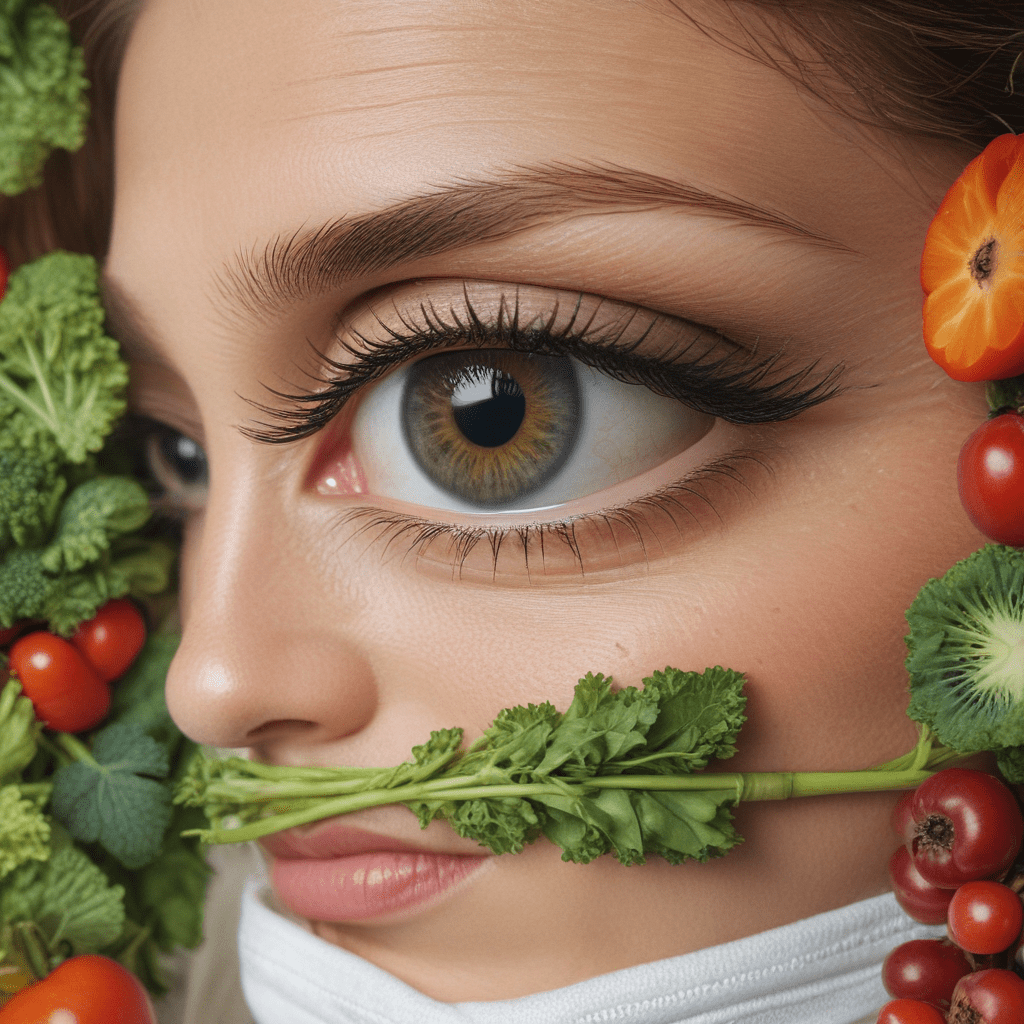
Vegan Diet and Eye Health: Enhancing Vision Naturally
I. Introduction
The eyes are delicate organs that play a pivotal role in our overall health and well-being. Maintaining optimal eye health is essential for clear vision and overall visual acuity. Diet plays a crucial role in nourishing the eyes and providing them with the essential nutrients they need to function properly. Among various dietary patterns, the vegan diet, rich in plant-based foods, has been shown to offer significant benefits for eye health.
II. Understanding the Role of Nutrients in Eye Health
Understanding the role of specific nutrients in eye health is fundamental to promoting optimal vision. Essential nutrients, such as vitamins, minerals, and antioxidants, are vital for maintaining the health of various structures within the eyes, including the cornea, lens, retina, and optic nerve. These nutrients protect the eyes from damage caused by free radicals, support retinal function, and contribute to the health of tear production.
III. The Benefits of a Vegan Diet for Eye Health
A vegan diet, which excludes all animal products, provides an abundance of nutrients that are essential for eye health. This dietary pattern is particularly rich in antioxidants, including vitamins C and E, lutein, and zeaxanthin, which protect the eyes from oxidative damage caused by free radicals. Furthermore, plant-based foods contain high levels of fiber, which can help regulate blood sugar levels and reduce the risk of age-related eye diseases such as diabetic retinopathy.
IV. Key Nutrients for Optimal Vision in a Vegan Diet
Several key nutrients play a crucial role in maintaining optimal vision in a vegan diet. Vitamin A, Omega-3 fatty acids, lutein, zeaxanthin, and zinc are essential for various aspects of eye health, including night vision, retinal function, and macular degeneration prevention. Understanding the specific functions of these nutrients and their plant-based sources is essential for vegans to make informed dietary choices that support eye health.
V. Vitamin A: Essential for Night Vision
Vitamin A is a fat-soluble vitamin with two forms: retinol, which is found in animal products, and beta-carotene, which is found in plant-based foods. Beta-carotene is converted into retinol in the body, and both forms are essential for good vision, especially in dim light conditions. Vitamin A deficiency can lead to night blindness, which is characterized by difficulty seeing in low light.
VI. Omega-3 Fatty Acids: Supporting Retinal Function
Omega-3 fatty acids are a group of essential fatty acids that play a vital role in overall health, including eye health. They are primarily found in oily fish, but vegans can obtain them from plant-based sources such as flaxseeds, chia seeds, and walnuts. Omega-3 fatty acids are incorporated into the cell membranes of the retina, where they support retinal function and protect against age-related macular degeneration (AMD).
VII. Lutein and Zeaxanthin: Protecting the Macula
Lutein and zeaxanthin are carotenoids, which are pigments that give plants their yellow, orange, and red colors. They are concentrated in the macula, the central part of the retina responsible for sharp central vision and color perception. Lutein and zeaxanthin act as antioxidants, protecting the macula from damage caused by harmful blue light and free radicals. They have been shown to reduce the risk of AMD, the leading cause of blindness in older adults.
VIII. Zinc: Vital for Cellular Metabolism in the Eyes
Zinc is an essential mineral involved in various aspects of cellular metabolism, including the production of proteins and enzymes. It is found in high concentrations in the eyes, where it plays a vital role in maintaining the health of the retina and choroid. Zinc deficiency can lead to impaired night vision, cataracts, and other eye problems.
IX. Healthy Plant Sources of Eye-Health Nutrients
Vegans can obtain all the essential nutrients for eye health from plant-based foods. Some of the best sources include:
- Vitamin A: Sweet potatoes, carrots, leafy green vegetables
- Omega-3 fatty acids: Flaxseeds, chia seeds, walnuts
- Lutein and zeaxanthin: Kale, spinach, broccoli
- Zinc: Beans, lentils, tofu, nuts
Including a variety of these foods in a vegan diet can help ensure an adequate intake of these vital nutrients.
X. Conclusion: The Power of a Vegan Diet for Improved Vision
A vegan diet rich in fruits, vegetables, whole grains, and legumes provides an abundance of nutrients that are essential for maintaining optimal eye health. By consuming these nutrients, vegans can reduce their risk of developing eye diseases such as cataracts, glaucoma, and AMD. Additionally, a vegan diet can help preserve vision and enhance overall eye health, supporting clear sight and a healthy quality of life.
FAQs:
Q: Can vegans get enough vitamin A?
A: Yes, vegans can obtain vitamin A from plant-based foods such as sweet potatoes, carrots, and leafy green vegetables.
Q: What are the best plant-based sources of omega-3 fatty acids?
A: Flaxseeds, chia seeds, and walnuts are excellent sources of plant-based omega-3 fatty acids.
Q: How can vegans protect their eyes from macular degeneration?
A: Consuming foods rich in lutein and zeaxanthin, such as kale, spinach, and broccoli, can help protect the macula from damage.
Q: What role does zinc play in eye health?
A: Zinc is essential for retinal health and choroidal function. Beans, lentils, tofu, and nuts are good sources of zinc for vegans.
Q: Can a vegan diet improve eyesight?
A: While a vegan diet cannot reverse existing vision loss, it can help preserve vision and prevent the development of eye diseases associated with aging.


